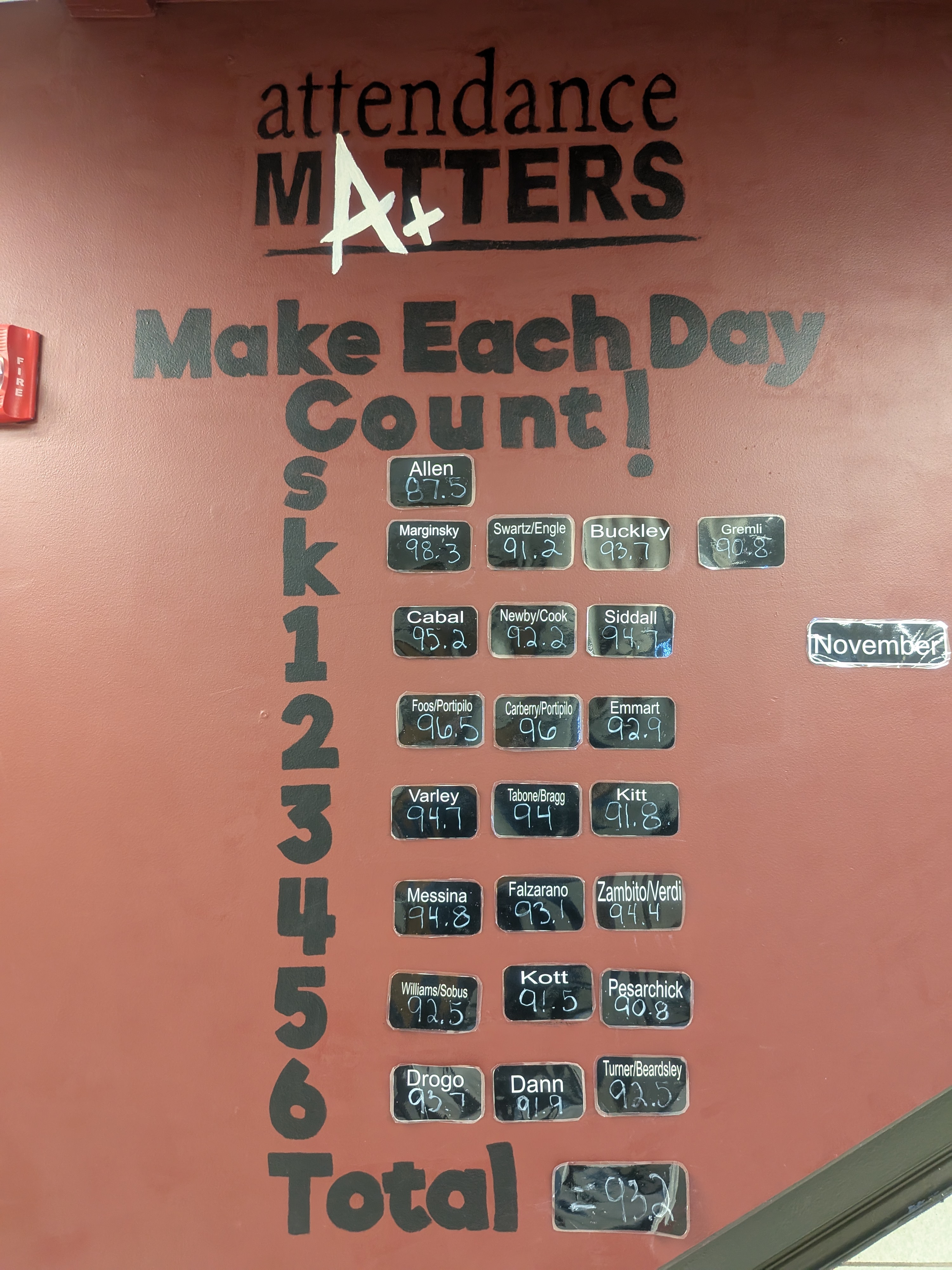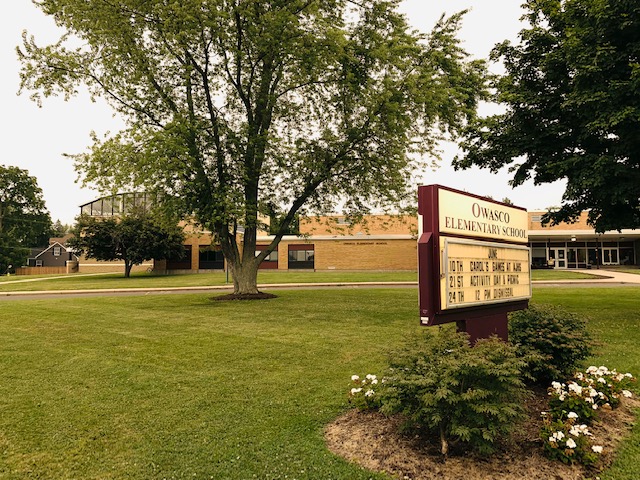Addressing absenteeism: District helps students return to class

AECSD Public Information Specialist
Why does attendance matter? It’s a simple question with a simple answer, but it can also be a complicated problem.
Being present in class means a child is more likely to succeed in school and also improves their developing socialization skills. The Auburn Enlarged City School District has procedures to help its students who are chronically absent students and provide incentives to come to school.
“If you're not here, you can't learn, and that's the problem we're facing right now,” said Dr. Misty Slavic, Auburn’s Superintendent of Schools. “Students need to be here, not only for academics but socialization as well. The longer they're away from school, the more we see a lot of anxiety about returning, so the problem perpetuates.”
“That anxiety starts to build,” she said, “because then they start thinking. ‘Oh, I wonder if anyone notices that I'm gone, or if my friends will still want to be my friends, or who I'm going to sit with at lunch? I wonder if my schedule has changed, I wonder what we did in class and what I missed; I'm already far behind. What's the point of going back?’ All of this anxiety just builds and builds, and it just creates this situation where students have this panic about returning.”
A teacher will reach out to parents if a student misses more than three class days of class. If there’s an issue, the school’s attendance team will call the home and try to meet with the family. Administrators will try to discover why students are absent and how to get them back to school. In addition to district staff members calling home to see how the schools can support families in getting their children to school, Auburn also has service providers that can connect families to various supports such as mental health, housing, and additional resources.
“Sometimes there are barriers we need to address to get them here,” said Herman Avenue Elementary School Principal Kelly Garback. “It could be something in school that needs to change, or it might be something within the families’ routine, structure, or environment that needs to change. Any of these things can impact the child’s desire to want to be at school or parent’s ability to get their child into the building. I think it all comes down to the relationships our support team and teachers have with those families and those partnerships that we create because it's our entire team supporting the whole child.”
Sometimes that means visiting the student’s home to meet with the parents and students.
“Our support team does complete home visits,” Garback said. “We'll have conversations with the parents and the kids and try to figure out where the barriers are. Our goal as a support system is to figure out where the breakdown is. I think we've been very fortunate that our dialogue with parents has been positive and families are typically pretty receptive to services and supports that are offered. We have great working relationships with many of our Community Agencies, which makes supporting families more effective”
Slavic said the district offers additional resources for students to catch up on their schoolwork.
“The quicker they come back, the easier it is for them to make up that work,” she said. “We just need to make sure that we know what's going on so that we can help and support that student.”
The district’s schools offer fun activities to help improve attendance. During school assemblies Genesee Elementary recognizes the grade that has the best attendance each month with a toy pig and a party. Herman students can earn extra incentives such as recess time, popsicle parties, breakfast with the principal, whole class Bingo, etc. Schools post attendance rates in the hallways.
Ultimately missing school affects a student’s ability to learn and graduate.
“That's huge, the statistics and the data clearly illustrate the facts behind absenteeism and the impact on academic growth,” Slavic said.
That’s why the Auburn Enlarged City School District prioritizes attendance and has procedures to help its students.
“I think really it comes down to that relationships our support team has with families and being able to have those open and difficult conversations because ultimately, we all have the same goal, we all want the kids in school,” Garback said.









